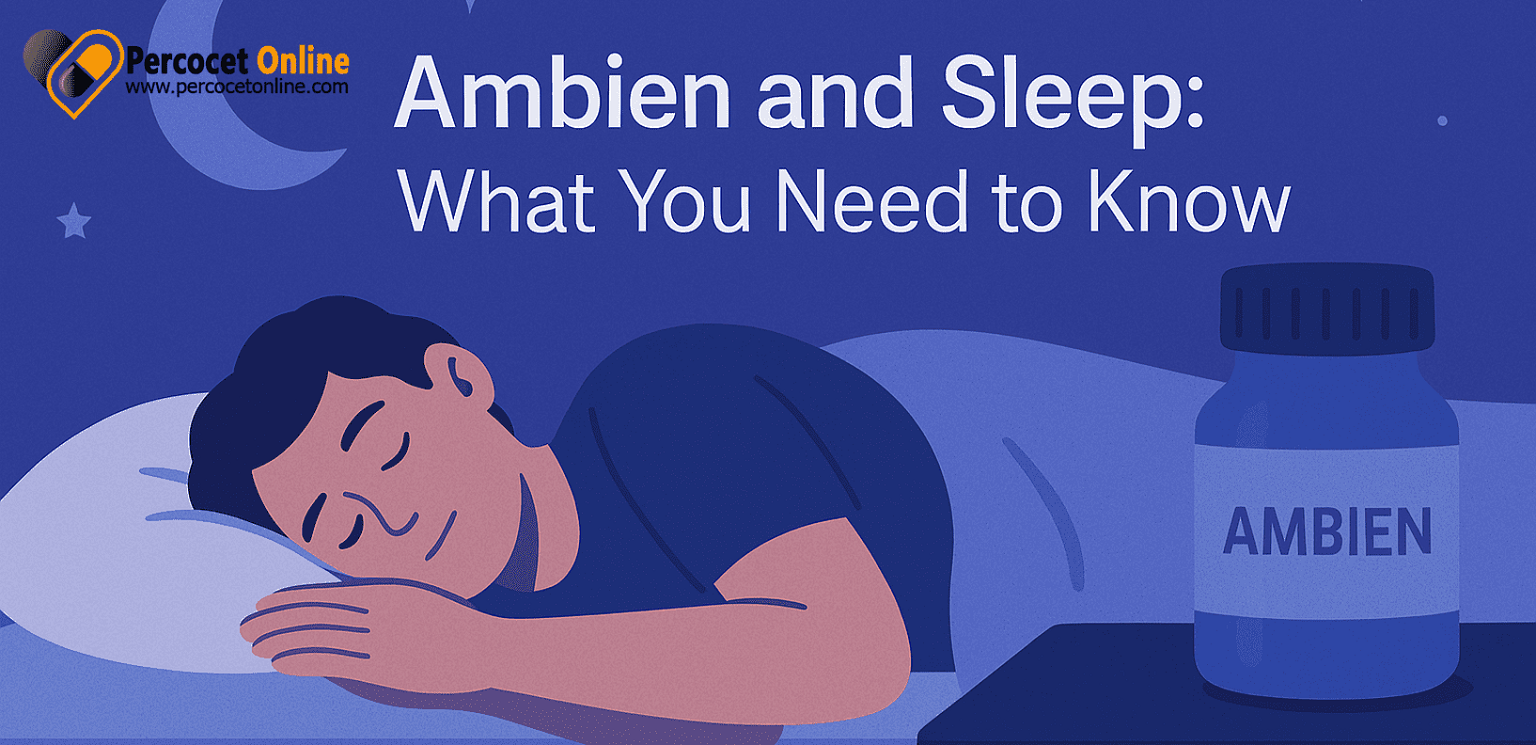
Sleep is essential for physical health, emotional well-being, and cognitive function. But for millions of people struggling with insomnia, achieving restful sleep can be a nightly battle. One of the most commonly prescribed medications to address this issue is Ambien. But how does Ambien work, is it safe, and what should you know before using it? Let’s explore the answers in this comprehensive guide.
What Is Ambien?
Ambien, known generically as zolpidem, is a prescription medication used to treat insomnia, particularly in adults who have trouble falling asleep. Classified as a sedative-hypnotic, Ambien works by slowing activity in the brain, helping users to relax and fall asleep faster.
There are two main forms of Ambien:
- Ambien (immediate-release): Helps you fall asleep when you first go to bed.
- Ambien CR (extended-release): Contains two layers — one to help you fall asleep quickly, and another that dissolves slowly to help you stay asleep.
How Does Ambien Work?
Ambien acts on the brain’s gamma-aminobutyric acid (GABA) receptors, enhancing their calming effects. GABA is a neurotransmitter that inhibits brain activity, promoting relaxation and sleepiness. By boosting GABA’s effects, Ambien reduces the time it takes to fall asleep.
However, it’s not designed for long-term use, as the body can build tolerance, leading to decreased effectiveness and dependency.
Who Should Consider Taking Ambien?
Ambien may be appropriate for adults who:
- Have chronic or acute insomnia
- Experience disrupted sleep due to anxiety or stress
- Struggle with falling asleep (rather than staying asleep, which may need a different solution)
- Have tried non-drug therapies like sleep hygiene with limited success
Note: Ambien is not recommended for children, pregnant women, or individuals with a history of substance abuse without strict medical supervision.
Pros and Cons of Using Ambien
Like any medication, Ambien has its benefits and drawbacks.
Pros:
- Fast-acting — induces sleep in about 15 to 30 minutes
- Helps achieve longer and higher-quality sleep
- Available in generic form (zolpidem) for affordability
- Often effective when other sleep aids fail
Cons:
- Risk of dependence and withdrawal symptoms
- Potential side effects like drowsiness, dizziness, memory loss
- May cause sleepwalking or performing activities while not fully awake
- Not suitable for long-term use (usually prescribed for 2-6 weeks)
Common Side Effects of Ambien
While many people tolerate Ambien well, it’s essential to be aware of possible side effects, including:
- Headache or dizziness
- Nausea or stomach discomfort
- Grogginess the next morning
- Unusual behaviors (e.g., sleepwalking, driving while asleep)
Serious side effects like allergic reactions, memory issues, or depression should be reported to a doctor immediately.
Tips for Taking Ambien Safely
To minimize risks and maximize effectiveness, follow these guidelines:
- Take it right before bed — only when you can dedicate 7–8 hours to sleep.
- Avoid alcohol or other sedatives, which can intensify drowsiness and side effects.
- Start with the lowest dose recommended by your doctor.
- Never mix with opioids or anti-anxiety medications unless prescribed.
Don’t drive or operate machinery the morning after taking Ambien.
Alternatives to Ambien: Natural Sleep Aids and Lifestyle Changes
If you’re hesitant about using Ambien or want to complement it with natural methods, consider these alternatives:
Natural Sleep Aids:
- Melatonin supplements
- Valerian root or chamomile tea
- Magnesium or L-theanine
Lifestyle Tips:
- Maintain a consistent sleep schedule
- Limit screen time before bed
- Avoid caffeine or large meals late in the evening
- Create a cool, dark, quiet sleep environment
For many, Cognitive Behavioral Therapy for Insomnia (CBT-I) is a highly effective long-term solution without medication.
Is Ambien Right for You?
Ambien can offer short-term relief for people struggling with insomnia, but it’s not a one-size-fits-all solution. Speak with your doctor to weigh the benefits and risks, and consider combining Ambien with lifestyle changes to promote long-term sleep health.
Conclusion
Ambien can be a powerful tool in the fight against insomnia, helping many people reclaim the restful nights they’ve been missing. However, like any medication, it comes with responsibilities. Understanding how Ambien works, its potential benefits, risks, and safe usage practices is essential for making an informed decision about your sleep health. Whether used short-term under medical guidance or as part of a broader sleep improvement plan, Ambien should always be approached with care. If you’re struggling with sleep, consult your healthcare provider to explore whether Ambien is the right choice for you—and take the first step toward better nights and brighter days.



































Leave a Reply